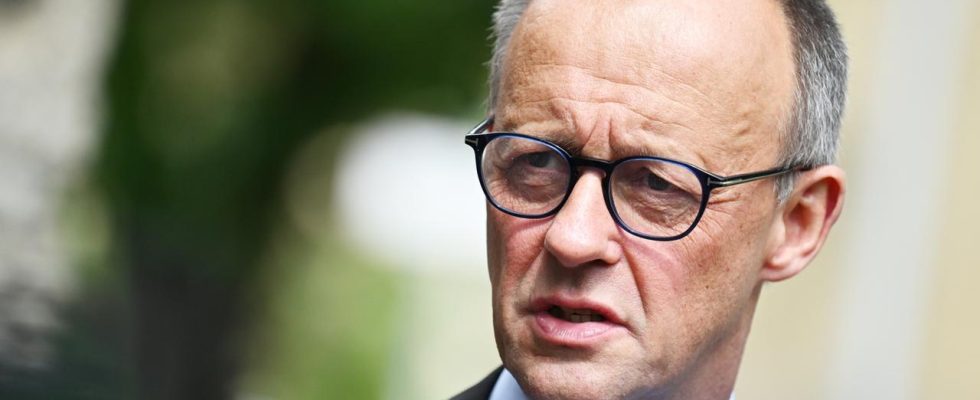The CDU is trying to make a fresh start, but it doesn’t really want to succeed. In East German federal states, it threatens to be overtaken by the right. The core question is whether the Union can live up to its own claims.
In principle, the conditions for the success of the Union could hardly be better: the traffic light government stumbles from one crisis to the next, which should bring countless opportunities for Germany’s largest opposition party. But the CDU cannot benefit from the traffic light chaos. While the party was last at 26 to 27 percent in polls, the AfD is celebrating poll successes on the right-hand edge and is not far behind the Union.
The CDU, which has ruled Germany for 16 consecutive years and has now led the opposition for almost two years, wants to redefine itself with a new policy program, but has been in the process of finding itself for months.
Mind games on the right edge
This is also due to her party leader Friedrich Merz, who has recently attracted attention with his unsuccessful statements about the AfD. In July, Merz called the CDU an “alternative for Germany with substance”. For some, it is clearly an invitation to work more closely with the far-right party.
After fierce and public criticism from his own party, Merz rowed back, but the traces remain and should reignite the debate at the latest after the East German state elections next year – with potential election results that make black-blue majorities at least mathematically possible. “It is the tragedy of the CDU that even where there was an opportunity to make programmatic positions visible, one always falls into the trap in the end,” says political scientist Julia Reuschenbach ARD Capital Studio.
One of the most pressing questions is: What does the party stand for, which shaped the fate of Germany in the post-war period like no other and now, in the midst of an identity crisis, cannot get its own fate under control? And how will she get out of this crisis?
Advances in different directions
In the search for more profile, there are always individual advances, for example from the deputy parliamentary group leader Jens Spahn, who recommends a “migration break” in Germany and thus hits a nerve. Or, in contrast, from the Baden-Württemberg CDU member of the Bundestag, Kai Whittaker, who wants everyone to have to pay into social security in the future, meaning that the rich and entrepreneurs would be more heavily burdened.
It remains unclear whether the CDU as a party stands for such ideas or whether these are just the opinions of individual politicians. The CDU is still waiting for real programmatic alternatives to traffic light chaos and the right-wing riots.
A mammoth task
With Carsten Linnemann, a new Secretary General is now to turn things around. Linnemann followed the hapless Mario Czaja, who acted too pale and now leaves his successor with a mammoth task.
Linnemann is now to sharpen the economic and conservative profile of the party. But they were also looking for someone with a clear edge, who sets issues and can put them on the public agenda. That Linnemann can be an attacker, he proved right at the beginning when he called for summary proceedings against Berlin outdoor pool thugs.
As a defender, Linnemann also has to support his party leader, who has come under pressure. This has also already happened after his statements on the AfD, when Linnemann had to explain the positions of his party leader and assured that Merz did not stand for cooperation with the AfD at the municipal level. Linnemann has clarified that, but many in the party are not quite happy with the situation.
Linnemann will need time
Not much can be seen from the change in the position of Secretary General anyway. Linnemann has so far stood for a potpourri of a few proposals that he repeats “mantra-like,” says political scientist Reuschenbach: for example, the proposal for tax-free earnings for pensioners.
That alone is not enough for a restart. The new general secretary will need time – time that he doesn’t have very much of. There are elections in Bavaria and Hesse in autumn, and in 2024 there will be three state elections in eastern Germany. The AfD is currently ahead in polls there. A success of the right-wing extremists could also be interpreted as a failure of the CDU.
Friedrich Merz can be seen today in the ARD summer interview – from 2 p.m. on tagesschau24 and on tagesschau.de and at 6 p.m. on the first.

